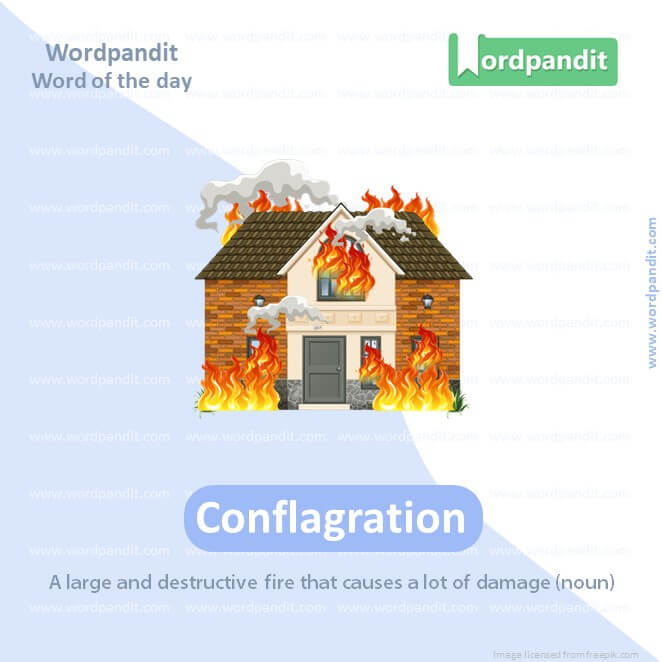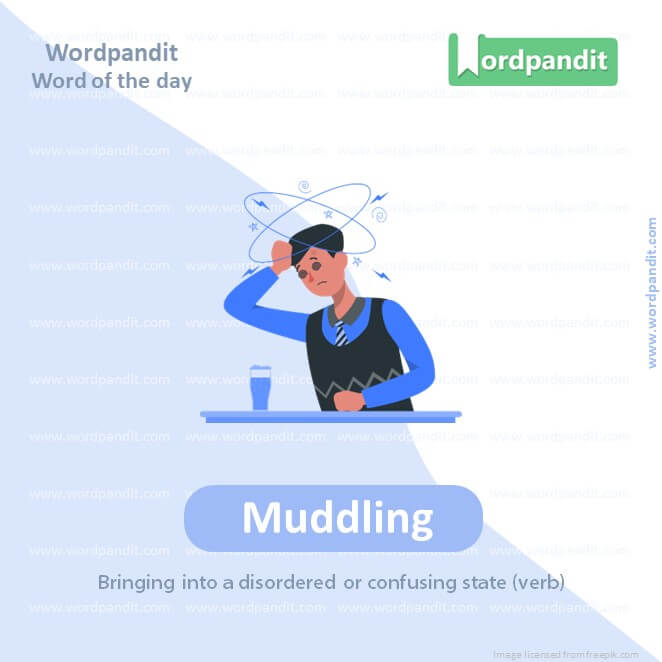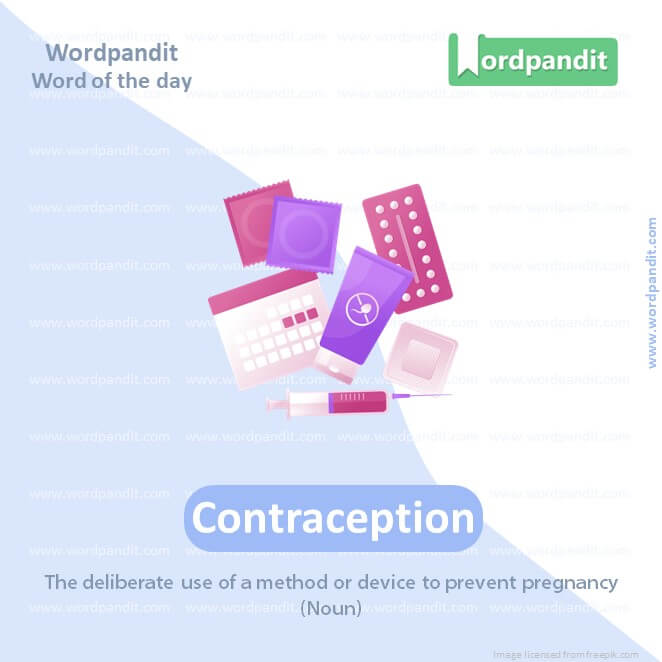Daily Vocabulary Words: Enhance Your Lexicon with Leading Newspapers & Publications
Welcome to the Daily Vocabulary section at Wordpandit!
Our mission is straightforward: to bring you essential vocabulary words featured in top newspapers and publications worldwide. By focusing on words you’ll encounter in renowned sources, we aim to help you enhance your vocabulary effectively and practically.
Our selection includes words from:
– The New York Times
– The Washington Post
– Scientific American
– BBC
– The Guardian
– Psychology Today
– Wall Street Journal
– The Economist
– The Hindu
– The Times of India
– The Economic Times
– Hindustan Times
– Live Mint
– The Indian Express
– And many more.
We are committed to your vocabulary development. Simply visit this section regularly and explore the daily posts. This is your go-to repository for commonly used words, providing significant practical benefits by familiarizing you with vocabulary from the leading publications listed above.
Make it a habit to visit our website daily and expand your lexicon with words from top newspapers and publications.

WORD-1: SUMMITING
CONTEXT: Teams reporting higher feelings of group belonging repeatedly outperform other teams because their members share more of their unique information about summiting Everest.
SOURCE: Washington Post
EXPLANATORY PARAGRAPH: Imagine you’re climbing a very tall mountain, and you finally reach the very top. That’s called “summiting.” It means you have reached the highest point of something, like a mountain.
MEANING: The act of reaching the top, especially the top of a mountain (noun)
PRONUNCIATION: SUH-mit-ing
SYNONYMS: Climbing, scaling, ascending, reaching, topping, peaking
USAGE EXAMPLES:
1. After hours of hiking, they finally succeeded in summiting the mountain.
2. Summiting Everest is a dream for many adventurous people.
3. The team celebrated after summiting the tallest peak in the range.
4. She felt proud after summiting her first big hill during the hike.

WORD-2: CONFLAGRATION
CONTEXT: The Houthis in Yemen this month, fears of a larger regional conflagration are steadily growing.
SOURCE: Washington Post
EXPLANATORY PARAGRAPH: A conflagration is like a really, really big fire that spreads quickly and can burn down lots of things, like houses or forests. It’s much bigger than just a small campfire.
MEANING: A large and destructive fire that causes a lot of damage (noun)
PRONUNCIATION: KON-fluh-GRAY-shun
SYNONYMS: Blaze, inferno, wildfire, firestorm, holocaust, combustion
USAGE EXAMPLES:
1. The conflagration destroyed several buildings in the town.
2. Firefighters worked hard to control the conflagration in the forest.
3. A small spark can sometimes cause a massive conflagration.
4. The city was evacuated due to the approaching conflagration.

WORD-3: METICULOUSLY
CONTEXT: They have said as much publicly, and perhaps more important, they have meticulously avoided taking direct military action against either Israel or the United States.
SOURCE: New York Times
EXPLANATORY PARAGRAPH: When you do something very carefully, paying attention to every tiny detail, that’s called doing it “meticulously.” It’s like when you color inside the lines and make sure not to go outside them.
MEANING: Ina way that shows great attention to detail; very thoroughly (adverb)
PRONUNCIATION: muh-TIK-yuh-lus-lee
SYNONYMS: Carefully, precisely, thoroughly, exactly, attentively, conscientiously
USAGE EXAMPLES:
1. She meticulously arranged all the toys in a straight line.
2. The artist painted the picture meticulously, with every detail perfect.
3. He meticulously checked his homework before turning it in.
4. The dress was meticulously sewn, with not a stitch out of place.

WORD-4: MUDDLING
CONTEXT: They were intentionally muddling that boundary.
SOURCE: New York Times
EXPLANATORY PARAGRAPH: Muddling is when you try to figure something out but end up making things messy or confusing. It’s like mixing things up when you’re not sure what to do.
MEANING: Bringing into a disordered or confusing state (verb)
PRONUNCIATION: MUH-dl-ing
SYNONYMS: Confusing, bungling, messing up, complicating, fumbling, botching
USAGE EXAMPLES:
1. He was muddling through his math homework, unsure of the answers.
2. Without a clear plan, they ended up muddling the entire project.
3. The detective was muddling through the clues, trying to find the right answer.
4. She was muddling in the kitchen, trying to make a recipe she had never tried before.
WORD-5: UNMITIGATED
CONTEXT: His presidency was not the unmitigated disaster his critics claim.
SOURCE: New York Times
EXPLANATORY PARAGRAPH: Unmitigated means something is completely one way, without any lessening or reducing. For example, if you have unmitigated fun, you have lots of fun with nothing to spoil it.
MEANING: Complete and absolute, without any reduction or lessening (adjective).
PRONUNCIATION: un-MIT-uh-gay-tid
SYNONYMS: Absolute, total, complete, pure, unqualified, full
USAGE EXAMPLES:
1. The party was an unmitigated success; everyone had a great time.
2. His unmitigated joy was clear when he saw the surprise.
3. The event was an unmitigated disaster, with everything going wrong.
4. She faced the unmitigated truth, no matter how harsh it was.

WORD-6: CONTRACEPTION
CONTEXT: Clarence Thomas has suggested overturning the marriage equality decision and even the right to contraception.
SOURCE: New York Times
EXPLANATORY PARAGRAPH: Contraception is something people use to avoid having a baby. It’s like when you don’t want something to happen, so you take steps to stop it.
MEANING: The deliberate use of a method or device to prevent pregnancy (Noun)
PRONUNCIATION: kon-truh-SEP-shun
SYNONYMS: Birth control, family planning, preventive measures, protection, barrier methods, contraceptive methods
USAGE EXAMPLES:
1. They discussed different methods of contraception with their doctor.
2. Contraception can help families plan when they want to have children.
3. The clinic provided information on contraception to young couples.
4. She chose a form of contraception that worked best for her lifestyle.
WORD-7: DISORIENT
CONTEXT: It would debase our culture, debilitate our democracy, disorient our allies and drive normal people nuts.
SOURCE: New York Times
EXPLANATORY PARAGRAPH: Disorient means to make someone feel confused or lost, like when you spin around and don’t know which way is which.
MEANING: To make someone feel confused and unsure of their surroundings (verb).
PRONUNCIATION: dis-OR-ee-ent
SYNONYMS: Confuse, bewilder, perplex, puzzle, baffle, unsettle
USAGE EXAMPLES:
1. The sudden darkness disoriented the hikers in the cave.
2. Loud noises can disorient some animals, making them act strangely.
3. The new city map disoriented him, and he couldn’t find his way.
4. She felt disoriented after waking up in a strange place.
WORD-8: INGRATIATING
CONTEXT: Stefanik or Senator Tim Scott of South Carolina. He’s pleasant and ingratiating, a tall drink of water.
SOURCE: New York Times
EXPLANATORY PARAGRAPH: Ingratiating means trying very hard to make someone like you, often by being overly nice or helpful. It’s like when you give a lot of compliments to get on someone’s good side.
MEANING: Trying to win favor or approval, often by being excessively nice (adjective).
PRONUNCIATION: in-GRAY-shee-ay-ting
SYNONYMS: Flattering, fawning, sycophantic, obsequious, charming, endearing
USAGE EXAMPLES:
1. He gave an ingratiating smile to his boss to get a promotion.
2. Her ingratiating behavior made everyone feel she was trying too hard.
3. The ingratiating compliments were too much and felt insincere.
4. She was ingratiating herself with the teacher to get a better grade.
WORD-9: UNSCRUPULOUS
CONTEXT: She’s aggressive and unscrupulous, a triple shot of moonshine.
SOURCE: New York Times
EXPLANATORY PARAGRAPH: Unscrupulous means someone doesn’t care about right or wrong and might do things that are unfair or dishonest to get what they want.
MEANING: Having or showing no moral principles; not honest or fair (adjective).
PRONUNCIATION: un-SKROO-pyuh-lus
SYNONYMS: Dishonest, unethical, immoral, deceitful, corrupt, unprincipled
USAGE EXAMPLES:
1. The unscrupulous businessman cheated his customers out of their money.
2. Unscrupulous tactics were used to win the game unfairly.
3. He was known for his unscrupulous behavior in politics.
4. She avoided doing business with unscrupulous people.
WORD-10: UNCHURCHED
CONTEXT: All of those things are lacking in New Hampshire. We are a very unchurched state as a whole.
SOURCE: New York Times
EXPLANATORY PARAGRAPH: Unchurched means someone who doesn’t go to church or isn’t part of any religious group. It’s like when you don’t belong to a club or team.
MEANING: Not belonging to or associated with any church or religious group (adjective).
PRONUNCIATION: un-CHURCH-ed
SYNONYMS: Nonreligious, secular, unreligious, unfaithful, unbaptized, unholy
USAGE EXAMPLES:
1. Many unchurched people still celebrate religious holidays in their own way.
2. The community welcomed both churched and unchurched individuals alike.
3. His unchurched background made him curious about different beliefs.
4. The program aimed to reach out to unchurched youth in the area.
Vocabulary List English
In the vibrant marketplace of language learning, a ‘vocabulary list English’ is akin to a beautifully stocked grocery list – a tool that equips learners with basic ingredients necessary for fluent communication. However, absorbing the ‘vocabulary list English’ proficiently requires more than mere memorization; it calls for an informed and strategic method of learning.
The initial step towards mastering ‘vocabulary list English’ involves adopting an interactive approach. Instead of just reading and revising, use flashcards or digital memory tools to make the process more engaging. Such modes of learning not only retain interest but also boost retention and comprehension.
When learning ‘vocabulary list English’, practice is a fundamental element. Use these words in routine conversations, emails, or social media posts. The more frequently you use the words, the swiftly their usage becomes second nature.
A crucial part of understanding ‘vocabulary list English’ lies in knowing the context. Simply knowing a word’s meaning isn’t enough; you must know how it’s used in different situations. Reading a variety of materials, from fiction and newspapers to blogs and digital content, offers insight into the practical application of these words, deepening your understanding.
Furthermore, it’s vital to frequently revise ‘vocabulary list English’. Call back to what you’ve learned and give it another run-through. This habit strengthens memory retention and enhances the likelihood of the words being accessible when needed.
In conclusion, mastering ‘vocabulary list English’ is achieved through a blend of engaging tools, active practice, contextual understanding, and regular revision. These strategies, combined, can make the task of mastering ‘vocabulary list English’ a less overwhelming and more rewarding journey. As you venture into this process, you grow and expand your English vocabulary, achieving a heightened level of fluency and confidence in your English communication abilities.













